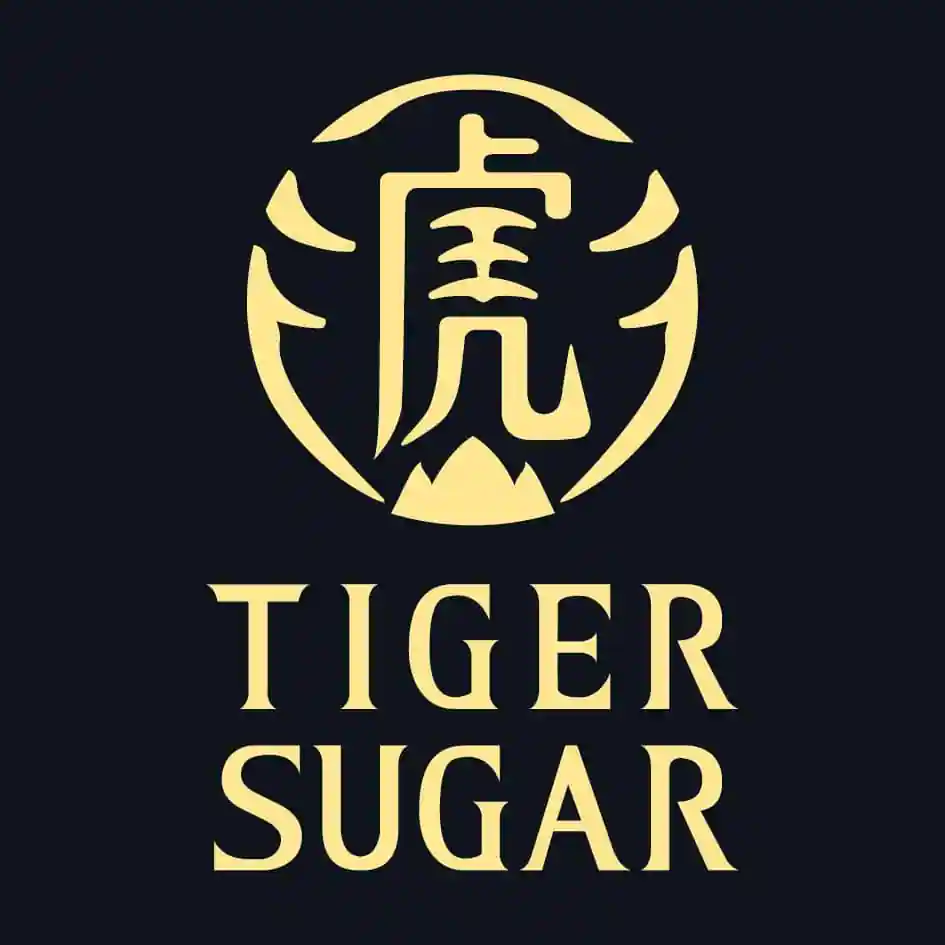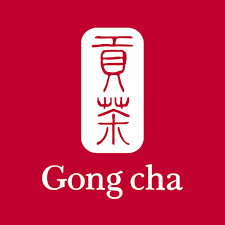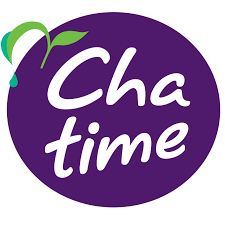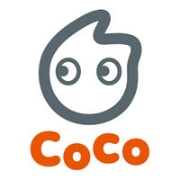Tiger Sugar Franchise in 2025: Costs, Fee & FDD
Explore the investment potential of a Tiger Sugar franchise, from initial costs to ongoing fees and revenue insights. Discover why this popular bubble tea brand, known for its iconic brown sugar boba milk, is rapidly expanding globally.

Table of Contents:
Tiger Sugar, founded in 2017 in Taichung, Taiwan, by Ming Tsung Tang, has quickly become a global sensation in the bubble tea industry. Known for its iconic brown sugar boba milk, Tiger Sugar has set itself apart by mastering the art of blending rich, caramelized brown sugar with creamy milk and chewy tapioca pearls. The brand’s unique approach to boba tea, coupled with its distinctive tiger stripe design on the cup, has made it a must-try for bubble tea enthusiasts worldwide. Its success is a testament to the growing demand for high-quality, Instagram-worthy beverages.
At its core, Tiger Sugar specializes in brown sugar boba milk drinks, but it also offers a variety of other beverages such as traditional milk teas, fruit teas, and coffee-based drinks. The brand caters to a diverse customer base, ranging from young adults seeking trendy beverages to families looking for a sweet treat. The aesthetic appeal of its drinks, along with the consistent quality, has helped Tiger Sugar carve out a niche in the competitive bubble tea market, appealing primarily to urban, trend-conscious consumers.
In terms of scale, Tiger Sugar has expanded rapidly, with over 200 locations worldwide, including in countries such as the United States, Canada, Australia, Singapore, and the Philippines. This impressive growth is fueled by the brand’s ability to maintain a consistent product experience across its global locations. On an average day, a busy Tiger Sugar outlet can serve hundreds of customers, highlighting the brand’s strong customer appeal and efficient operational model.
The franchise support system for Tiger Sugar is robust, offering comprehensive training programs for new franchisees that cover everything from product preparation to customer service and brand marketing. Additionally, franchisees benefit from ongoing support in terms of marketing, supply chain management, and operations. The brand’s commitment to quality and consistency ensures that franchisees are well-equipped to succeed, making Tiger Sugar an attractive option for those looking to invest in the fast-growing bubble tea industry.
Tiger Sugar Franchise Insights
Tiger Sugar has grown to over 200 locations across 15 countries within just six years, demonstrating its rapid global expansion and popularity. In the U.S. the franchise has expanded to over 40 locations.
The franchise’s signature drink, brown sugar boba milk, accounts for more than 70% of its sales, highlighting its core product’s dominance and customer appeal.
A well-performing Tiger Sugar location can serve up to 500 cups daily, indicating a strong daily customer base and high turnover potential.
Tiger Sugar Franchise Key indicators
Growth YOY (%)
37%
vs industry 1%
Total U.S. Franchised Units
26
3-Year Failure Rate
0%
vs industry 11%
Total Investment
$306K-$542K
How much does it cost to open a Tiger Sugar franchise?
Understanding the potential investment size and capital requirements is crucial when considering opening a Tiger Sugar franchise. These financial commitments, including initial franchise fees, equipment costs, and ongoing operational expenses, impact the feasibility and profitability of the venture. Thoroughly evaluating these factors ensures that potential franchisees are prepared for the financial responsibilities and can make informed decisions about their ability to sustain and grow the business, ultimately contributing to long-term success.
Min & Max Investment
Opening a Tiger Sugar franchise involves several key costs, which are outlined in Item 7 of the Franchise Disclosure Document (FDD). You can see a breakdown of the costs to open a Tiger Sugar below from the most recent Item 7 below:
Type of Expenditure
Minimum Investment
Maximum Investment
Initial Franchise Fee
$85,000
$85,000
Initial Training and Support Fee
$15,000
$15,000
Store Design Fee
$6,000
$6,000
Business Licenses & Permits
$6,000
$20,000
Leasehold Improvements
$50,000
$180,000
Fixtures, Furnishings & Equipment
$45,000
$50,000
Computer and Point of Sale System
$3,000
$5,000
Architect/Engineering Fees
$0
$14,000
Rent, Security Deposits and Utility Deposits
$5,000
$20,000
Other Professional Fees
$1,000
$5,000
Insurance Deposit
$1,000
$2,000
Initial Inventory of Food, Beverage, Paper Supplies and Small wares
$25,000
$30,000
Training Expenses
$500
$5,000
Grand Opening Advertising
$3,000
$5,000
Additional Funds (for the initial 3 months of operations)
$60,000
$100,000
Total Estimated Initial Investment
$305,500
$542,000
Item 7 in the Franchise Disclosure Document (FDD) is the “Estimated Initial Investment” section. It outlines the total costs a franchisee can expect to incur when starting a franchise, including the initial franchise fee, equipment, inventory, real estate, and other startup expenses. This section is crucial because it provides potential franchisees with a detailed understanding of the financial commitment required, helping them assess affordability and plan their investment strategy effectively.
Required Capital
To open a Tiger Sugar franchise, the required capital involves both the initial investment costs and financial requirements set by the franchisor. Let’s take a closer look below:
- Initial Investment The total estimated initial investment for a Tiger Sugar franchise typically ranges from $306,000 to $542,000. This estimate includes the franchise fee, equipment, initial inventory, and costs associated with setting up the store, such as real estate and construction. Assuming that you will finance your franchise investment, you should plan to have 20% of the total investment amount in the form of equity (cash) for the investment.
- Liquid Assets Requirement While specific figures can vary, it is generally recommended that franchisees have a minimum of $100,000 in liquid assets. This ensures that the franchisee can manage unforeseen expenses and maintain operational stability during the initial phase.
- Net Worth Requirement Tiger Sugar may require potential franchisees to have a net worth of at least $300,000 to $500,000. This includes the value of assets such as real estate, investments, and personal property, minus any liabilities.
These figures are estimates and can vary based on location and other factors, so it’s important to verify with the franchisor for the most accurate and up-to-date information.
How much does a Tiger Sugar franchise owner make?
Calculating the salary of a Tiger Sugar franchise owner involves analyzing gross sales to determine total revenue, assessing operational efficiency to understand profit margins, and accounting for franchisor fees and additional expenses such as rent, utilities, and payroll. Effective management of these factors can significantly impact the profitability and financial success of a Tiger Sugar franchise owner. This comprehensive financial analysis helps estimate net profits, from which the owner’s salary can be derived. A clear understanding of these factors ensures accurate salary projections and financial planning for sustainable business operations.
Tiger Sugar Revenue & Gross Sales
While specific revenue figures for Tiger Sugar franchises are not publicly disclosed, the franchise is widely recognized for its strong financial performance, driven by the popularity of its unique brown sugar boba drinks and high customer demand. Typically, bubble tea franchises like Tiger Sugar can achieve impressive sales figures when situated in high-traffic areas and managed effectively. By prioritizing quality control and leveraging the brand’s global appeal, franchise owners have the potential to generate substantial revenue and achieve attractive returns on their investments.
Which key factors impact the average revenue performance of Tiger Sugar franchisees?
The U.S. franchisee median gross sales revenue performance for Tiger Sugar is likely influenced by several key factors. First, the brand’s strong reputation and social media presence drive consistent customer traffic, particularly among younger demographics who value trendy, high-quality beverages. Second, the simplicity and appeal of Tiger Sugar’s menu, especially its signature brown sugar boba milk, contribute to high sales volumes. Location is also crucial, with franchises in high-traffic areas or popular shopping districts benefiting from increased foot traffic. Additionally, operational efficiency and consistent product quality, supported by the franchise’s robust training and support programs, play a significant role in maintaining strong revenue performance across locations.
Tiger Sugar Franchise Operational Costs
When opening a Tiger Sugar franchise, there are several key primary ongoing operational costs to consider:
- Rent and Utilities The cost of leasing or renting a prime location is a significant ongoing expense. Utilities such as electricity, water, and internet are also recurring costs that can vary depending on the location and size of the store.
- Staffing Costs Wages for employees, including baristas, managers, and cleaning staff, are major ongoing expenses. You’ll also need to consider payroll taxes, benefits, and any additional training costs.
- Inventory and Supplies Regular replenishment of ingredients like tapioca pearls, brown sugar, milk, and other beverage components is essential. Additionally, you’ll need to budget for cups, straws, and other disposable items.
- Marketing and Advertising While the franchisor may handle national campaigns, local marketing and promotional activities are often the franchisee’s responsibility. This includes digital marketing, local events, and community engagement efforts.
- Maintenance and Repairs Regular maintenance of equipment, such as bubble tea machines and refrigeration units, along with any necessary repairs, will be ongoing operational costs.
- Insurance Business insurance, including liability, property, and workers’ compensation, is essential to protect your investment and employees.
- Technology and POS Systems Monthly fees for point-of-sale (POS) systems, software, and potentially any franchise-specific technology platforms must be considered.
These costs will vary depending on the location, store size, and local economic conditions, so it’s crucial to plan and budget accordingly.
Tiger Sugar Franchise Fees
When considering the ongoing fees associated with opening a Tiger Sugar franchise, it’s important to be aware of several key financial obligations:
- Royalty Fee You will be required to pay 7% of your Net Sales as a royalty fee. This fee is due by the third business day after the close of each week and is based on the store’s Net Sales, which include all revenue generated by the store (excluding customer refunds and sales taxes).
- Advertising Obligation You must contribute 1% of your Net Sales to the Advertising Fund. Additionally, you are required to directly spend an additional 1% of your Net Sales on local advertising efforts.
- Potential Regional Advertising Cooperative Contribution Depending on your location, you may also be required to contribute to a regional advertising cooperative, which could impact how your local advertising budget is allocated.
- Additional Fees There may be other fees associated with the franchise, so it’s important to review the franchise agreement thoroughly and consider these costs in your overall budget.
These fees are typical of franchise operations and are essential for maintaining the brand’s consistency and market presence.
Tiger Sugar Franchise Earnings
While specific earnings data for Tiger Sugar franchises is not readily available, an informed overview can be provided based on industry standards and the characteristics of this popular bubble tea brand. Tiger Sugar, with its iconic brown sugar boba milk and global brand recognition, has the potential to generate impressive revenue within the specialty beverage sector. Key factors such as location, customer traffic, and effective management are critical in determining a franchise’s financial performance.
Industry benchmarks for similar beverage franchises indicate that gross sales can vary significantly, with well-positioned and efficiently operated locations achieving notable sales figures. When projecting potential earnings, it’s important to factor in the initial investment and ongoing costs, including royalty and marketing fees. Franchises with strong support systems and comprehensive training programs, like Tiger Sugar, are generally better equipped to reach profitability.
Prospective franchisees should conduct thorough market research, considering variables such as local competition, consumer preferences, and demographic trends. By capitalizing on Tiger Sugar’s brand appeal and following best practices, a franchise can align with the earnings potential seen in successful beverage franchises. Consulting with existing franchisees and financial advisors can also offer valuable insights into setting realistic earnings expectations.
How to Open a Tiger Sugar Franchise
Becoming a Tiger Sugar franchisee involves several key steps, starting from the initial inquiry to the start of operations for your new business. Here’s an overview of the process:
- Initial Inquiry You or your franchise specialist submits an initial inquiry basic information about your interest and background. You should also conduct thorough research on the franchise, including seeing all of the information available on the Vetted Biz franchise intelligence platform, including access to the most recent Franchise Disclosure Document (FDD).
- Application and Screening After the initial inquiry, you’ll be required to complete a formal franchise application. This includes providing details about your financial qualifications, business experience, and reasons for wanting to join the Tiger Sugar franchise. The franchisor will review your application to assess your suitability as a franchisee.
- Franchise Agreement and Initial Investment Once you’re ready to proceed, you’ll sign the franchise agreement and pay the initial franchise fee. This step formalizes your commitment and grants you the rights to operate a Tiger Sugar franchise.
- Site Selection and Lease Negotiation The next step involves finding a suitable location for your store. Tiger Sugar will typically assist you with site selection, helping you choose a location that meets their brand standards and has strong potential for customer traffic. You’ll then negotiate the lease terms for your chosen location.
- Training Program Before opening your store, you’ll undergo a comprehensive training program provided by Tiger Sugar. This training covers everything from product preparation to customer service, marketing, and day-to-day operations, ensuring you’re fully equipped to run your business.
- Store Build-Out and Setup After completing training, you’ll begin the process of setting up your store. This includes the build-out of the physical space, purchasing equipment, and setting up inventory. Tiger Sugar typically provides guidelines and support throughout this process to ensure consistency across all locations.
- Pre-Opening Marketing and Hiring As your store nears completion, you’ll start pre-opening marketing campaigns to generate buzz and attract customers. You’ll also begin hiring and training your staff to ensure they’re ready for the grand opening.
- Grand Opening and Start of Operations Once everything is in place, you’ll host a grand opening event to officially launch your Tiger Sugar franchise. From this point, you’ll begin regular operations, serving customers and building your business with ongoing support from the franchisor.
Pros & Cons
Pros
Strong Brand Recognition: Tiger Sugar has established itself as a leading name in the bubble tea industry, with a recognizable brand and a loyal customer base, which can help drive traffic to your location.
Popular Core Product: The signature brown sugar boba milk is a highly sought-after product, consistently drawing customers due to its unique flavor and Instagram-worthy presentation.
Global Presence and Growth Potential: With over 200 locations worldwide, Tiger Sugar’s rapid expansion demonstrates its strong market appeal and potential for continued growth, offering opportunities for franchisees.
Cons
High Competition in the Bubble Tea Market: The bubble tea market is crowded with numerous brands and local shops, which may pose a challenge in differentiating your store and capturing a significant market share.
Location-Dependent Success: The success of your franchise can be highly dependent on the location, with prime, high-traffic areas likely to perform better. Securing such a location can be competitive and costly.
Limited Menu Diversity: While the core product is popular, the menu’s limited diversity may restrict appeal to a broader customer base, especially if local tastes vary or change.





